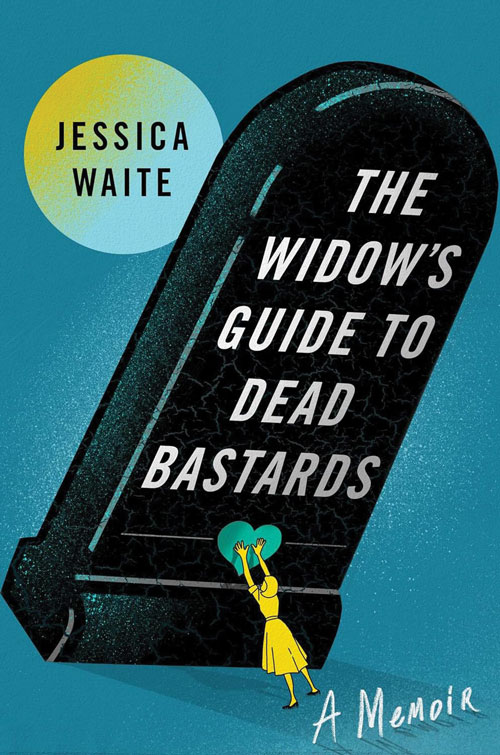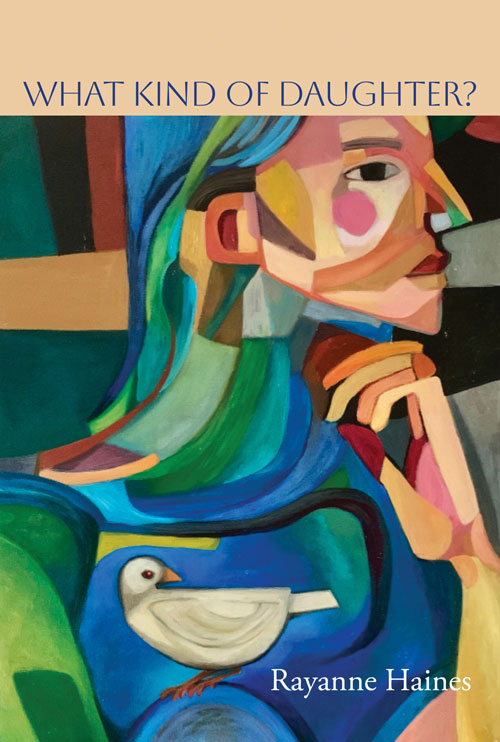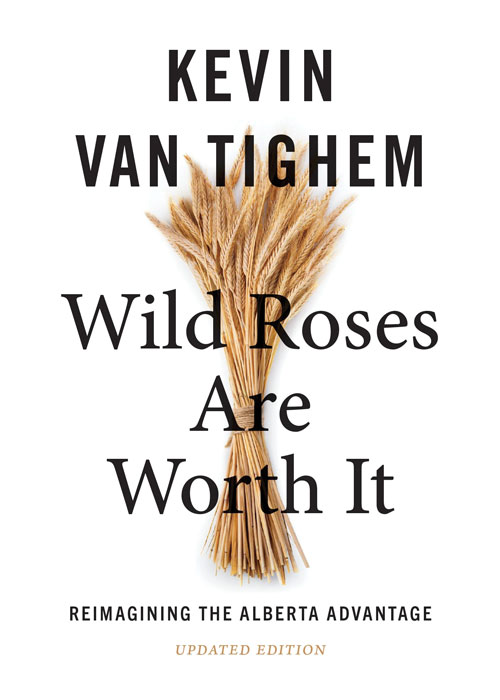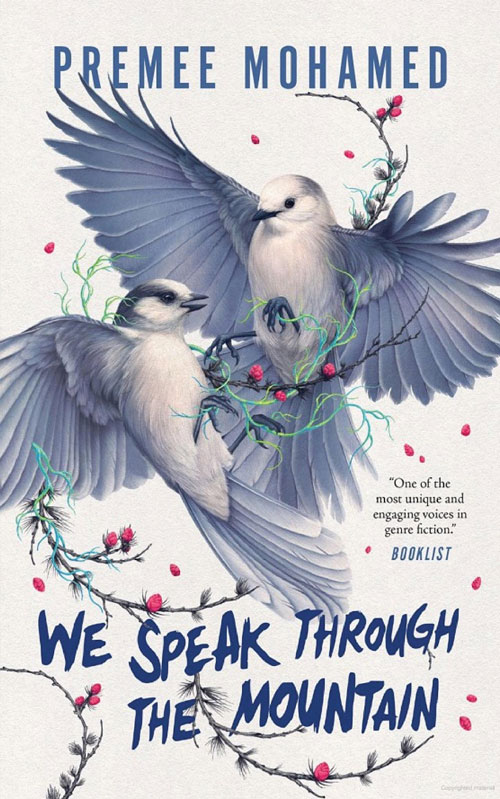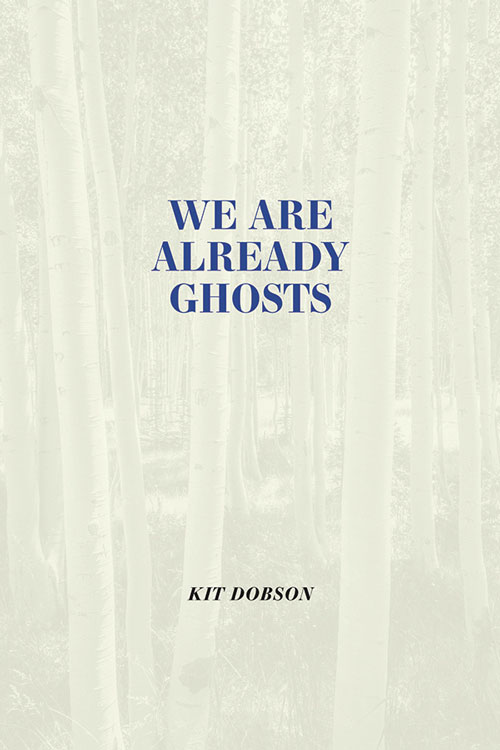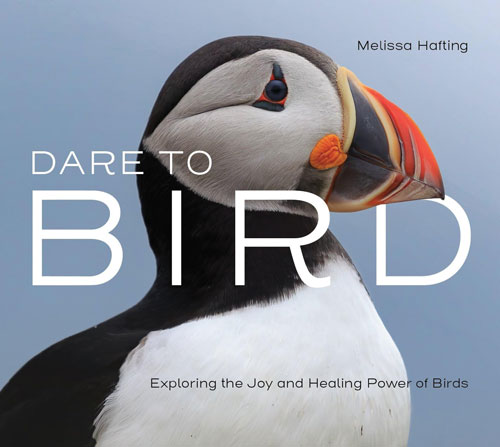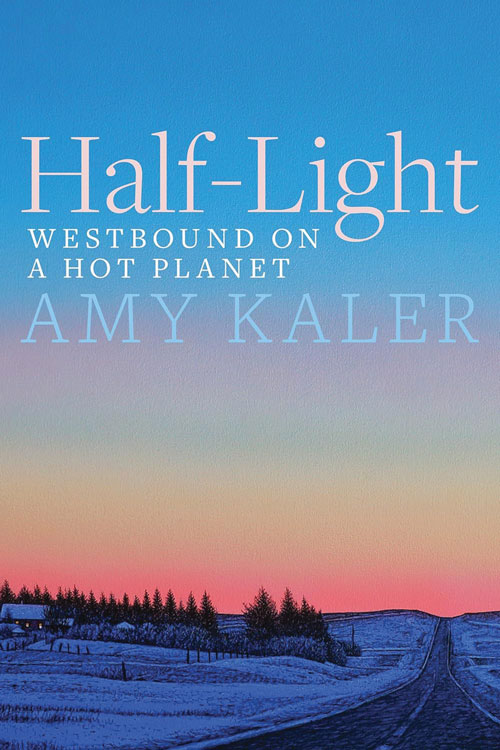 CBC Edmonton
CBC Edmonton
More supports needed for hospice care in rural Alberta, report says
Rural Municipalities of Alberta (RMA) is calling for better funding of community hospice organizations that provide end-of-life care, so Albertans living in rural and remote areas can get the care the ...More ...

Rural Municipalities of Alberta (RMA) is calling for better funding of community hospice organizations that provide end-of-life care, so Albertans living in rural and remote areas can get the care they need in their home communities, according to a new report.
3 Jan 2025 23:49:56
 CBC Calgary
CBC Calgary
3rd person wanted in Lethbridge motel killing
Two men have been arrested and investigators are currently looking for a 23-year-old woman from Pincher Creek, Alta. All three are facing charges of first-degree murder. ...More ...

Two men have been arrested and investigators are currently looking for a 23-year-old woman from Pincher Creek, Alta. All three are facing charges of first-degree murder.
3 Jan 2025 23:48:42
 CBC Edmonton
CBC Edmonton
Families call for accountability in deaths of 2 men in northern Alberta motorcycle crash
Dozens of protesters gathered outside RCMP headquarters in Edmonton Friday as the families of two men killed in an Alberta highway crash last summer called for accountability. ...More ...

Dozens of protesters gathered outside RCMP headquarters in Edmonton Friday as the families of two men killed in an Alberta highway crash last summer called for accountability.
3 Jan 2025 23:30:54
 CBC Calgary
CBC Calgary
Premier League pioneer Lydia Bedford named Calgary Wild FC's first coach
Lydia Bedford, the first woman to hold a coaching position at an English Premier League club, will take on a new role in Calgary with Wild FC when the inaugural season of the Northern Super League kic ...More ...
Lydia Bedford, the first woman to hold a coaching position at an English Premier League club, will take on a new role in Calgary with Wild FC when the inaugural season of the Northern Super League kicks off in April.
3 Jan 2025 23:18:48
 CBC Calgary
CBC Calgary
'I am pretty pumped': Olympic plaza brick return program on solid ground
More than 5,000 bricks have been removed from Olympic Plaza to be returned to thousands of Calgarians to clear the way for expansion of Arts Commons, as a piece of the city’s Olympic memories begins ...More ...

More than 5,000 bricks have been removed from Olympic Plaza to be returned to thousands of Calgarians to clear the way for expansion of Arts Commons, as a piece of the city’s Olympic memories begins to fade.
3 Jan 2025 21:03:59
 CBC Calgary
CBC Calgary
Some Albertans are making the jump to electric trucks, but they're still a long way from being a big hit
They're just as bold and big, but you won't hear the engines rev and roar by. That's because these trucks are the battery-powered versions of the pickup Albertans know and love. ...More ...

They're just as bold and big, but you won't hear the engines rev and roar by. That's because these trucks are the battery-powered versions of the pickup Albertans know and love.
3 Jan 2025 20:57:43
 CBC Calgary
CBC Calgary
New non-profit vet clinic opening soon in Calgary
A new non-profit veterinary clinic will be opening soon in Calgary. Run by the Canadian Animal Task Force, the animal hospital is located just south of the Stampede grounds. ...More ...

A new non-profit veterinary clinic will be opening soon in Calgary. Run by the Canadian Animal Task Force, the animal hospital is located just south of the Stampede grounds.
3 Jan 2025 19:53:16
 CBC Edmonton
CBC Edmonton
Alberta NDP Leader Naheed Nenshi to seek nomination in Edmonton-Strathcona
Alberta NDP Leader Naheed Nenshi says he's seeking the party's nomination to run as a candidate in Edmonton. ...More ...
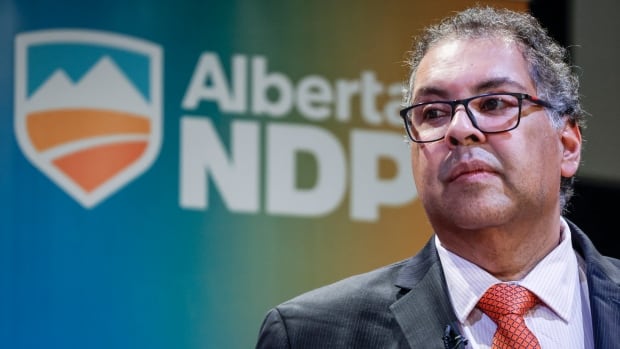
Alberta NDP Leader Naheed Nenshi says he's seeking the party's nomination to run as a candidate in Edmonton.
3 Jan 2025 17:35:56
 CBC Calgary
CBC Calgary
Downtown Calgary office vacancy rate still highest in Canada, but trending in right direction
Altus Group says as of its most recent data from Q3 2024, Calgary's office vacancy rate is 23.3 percent, about five per cent higher than the national average, but is down from Q1 2023, when it was ...More ...
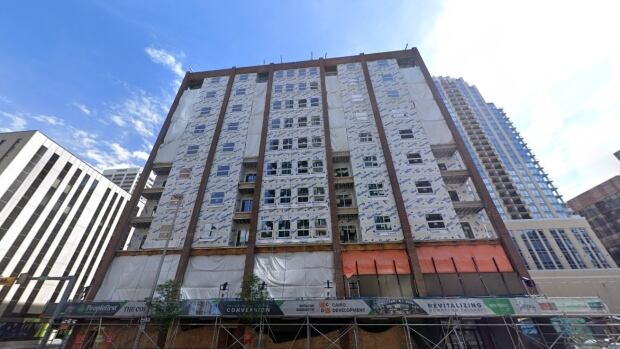
Altus Group says as of its most recent data from Q3 2024, Calgary's office vacancy rate is 23.3 percent, about five per cent higher than the national average, but is down from Q1 2023, when it was 25 per cent.
3 Jan 2025 15:00:00
 CBC Edmonton
CBC Edmonton
Canadian forests primed for more severe wildfire days, new research warns
The country is increasingly primed for severe, uncontrollable wildfires, a study published Thursday said, underlining what the authors described as a pressing need to proactively mitigate the "increas ...More ...

The country is increasingly primed for severe, uncontrollable wildfires, a study published Thursday said, underlining what the authors described as a pressing need to proactively mitigate the "increased threat posed by climate change."
3 Jan 2025 14:03:07
 CBC Edmonton
CBC Edmonton
Get the party started: Why the Edmonton election will be unlike any other
Political parties making a foray into the 2025 municipal election in Alberta could frustrate voters, lose the public’s trust and change how candidates express their views, political watchers warn. ...More ...

Political parties making a foray into the 2025 municipal election in Alberta could frustrate voters, lose the public’s trust and change how candidates express their views, political watchers warn.
3 Jan 2025 09:00:00
 CBC Edmonton
CBC Edmonton
Appeal court rules against new trial for Edmonton man who sexually abused teen girls
The Court of Appeal of Alberta rejected Noor Sultan's argument that the jury in his trial wasn't properly instructed before deliberating and finding him guilty on 12 charges. ...More ...

The Court of Appeal of Alberta rejected Noor Sultan's argument that the jury in his trial wasn't properly instructed before deliberating and finding him guilty on 12 charges.
3 Jan 2025 09:00:00
 CBC Edmonton
CBC Edmonton
Jasper Food Bank moving toward a permanent home
Since the Jasper Food Bank’s space burned in July’s wildfire, the food bank has been operating inside the Jasper Legion. Facing high demand, it's moving again — into its final pit stop before se ...More ...
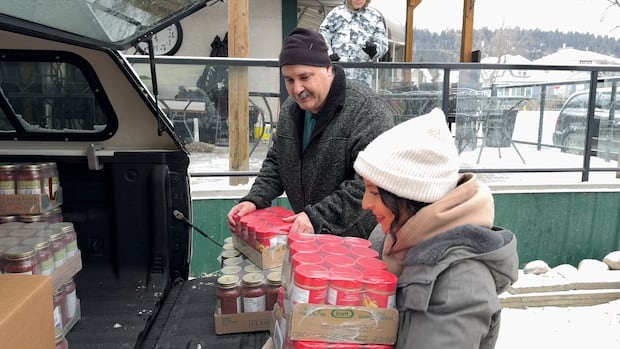
Since the Jasper Food Bank’s space burned in July’s wildfire, the food bank has been operating inside the Jasper Legion. Facing high demand, it's moving again — into its final pit stop before settling into a more permanent home later this winter. The CBC’s Acton Clarkin was there on moving day.
3 Jan 2025 09:00:00
 CBC Edmonton
CBC Edmonton
Mounties cleared by Alberta police watchdog in fatal 2021 shooting of suspected killer
Alberta's police watchdog says officers acted reasonably in the fatal shooting of a man suspected of stealing a truck and killing his ex-girlfriend. ...More ...

Alberta's police watchdog says officers acted reasonably in the fatal shooting of a man suspected of stealing a truck and killing his ex-girlfriend.
3 Jan 2025 02:36:16
 CBC Edmonton
CBC Edmonton
Edmonton police seeking help with probe into suspicious fire that led to deaths of 2 women
Edmonton police are seeking help from the public in their investigation into the deaths of two women following a suspicious house fire last summer. ...More ...

Edmonton police are seeking help from the public in their investigation into the deaths of two women following a suspicious house fire last summer.
2 Jan 2025 21:32:05
 Alberta Views
Alberta Views
The Widow’s Guide to Dead Bastards
by Jessica WaiteATRIA BOOKS2024/$29.99/320 pp. The Widow’s Guide to Dead Bastards is a step-by-step survival guide for a waking nightmare. Jessica Waite’s husband unexpectedly dies in the Denver a ...More ...
The Widow’s Guide to Dead Bastards is a step-by-step survival guide for a waking nightmare. Jessica Waite’s husband unexpectedly dies in the Denver airport on his way back to his family in Calgary—and as if that weren’t bad enough, what happens next is truly shocking. Waite unpacks in excruciating detail the hidden life of her husband she discovers piece by painful piece in the months following his death: all manner of major and minor betrayals relating to adultery, drug use, financial deception, addiction and mental health struggles.
Waite’s memoir is not for the faint of heart. Writing a highly personal story set in a big-small town such as Calgary is a brave and sometimes unfathomable project. While giving herself space to mourn the premature death of her husband, comfort her young child and maintain relationships with her in-laws, she also unwittingly unlocks a Pandora’s box of secrets that her husband has kept from her, in the process upending everything she thought about her marriage.
When I read Karl Ove Knausgård’s epic series My Struggle, I thought he was digging himself a deep hole, naming names in Norway’s small literary community. But Knausgård’s got nothing on Waite’s delving into her traumatic discoveries while trying to maintain the reputation of her former partner for the sake of her family and his. The Widow’s Guide to Dead Bastards is a tightrope walk that Waite manages masterfully.
To the reader’s relief, the second half of the book turns the focus from terrible discovery to patient and painful reckoning. Waite finds a new community of support from therapists, various healing philosophies and a small but loyal group of people who have experienced something similar. The strength of the book is her often shocking honesty. She doesn’t shy away from the nuance and complexity of her situation. She shares tender memories and fits of rage. She revels in petty revenge against one of her husband’s mistresses. She finds herself on dating apps approaching first dates and trying to figure out how to explain her unique brand of widowhood. She makes a “fuck you, Sean Waite” playlist and plays it loudly and often.
Waite’s book is not a trauma dump, and she avoids clichés and easy answers, delivering a clear-eyed memoir that looks trauma straight in the face and finds solutions both petty and profound. She does all of this while mothering a child through the grief for the man she is learning too much about. The Widow’s Guide to Dead Bastards avoids being all about the trainwreck simply because the author pops out of the derailed car and starts fixing the track herself. This is a book about healing, complicated relationships and moving forward.
Megan Clark is a writer and librarian from Lethbridge.
____________________________________________
Support independent local media. Please click to subscribe.
The post The Widow’s Guide to Dead Bastards appeared first on Alberta Views.
2 Jan 2025 18:34:24
 Alberta Views
Alberta Views
What Kind of Daughter?
by Rayanne HainesFRONTENAC HOUSE2024/$19.99/88 pp. Blending poetry and prose in any text is a tough endeavour. The reader who wants one genre often doesn’t yearn for the other, whether generally or ...More ...
Blending poetry and prose in any text is a tough endeavour. The reader who wants one genre often doesn’t yearn for the other, whether generally or temporally. In What Kind of Daughter? Rayanne Haines attempts this hybrid account of living in a traumatic time, including through her mother’s illness and death, using spare, lower-case lyrics (“being this woman/ is a back road and full/ moon and the howl everyone/ begs to hear” from “Faultlines”) and passages of direct, unyielding reportage, as in “Pink Blooms”: “For ten days, I watched my mother die. And now I’m writing about it. Sometimes, I think I am perverse, with this need to write about it.”
It’s refreshing to read unabashed assertions revolving around sexuality’s conflicts, problematic familial bonds and personal approaches to feminism. It’s hard to admit to these realities yet it’s even more necessary now, as women are being questioned again for speaking about their wombs and their own valid experiences of periods or menopause. And these are often brutal truths, such as those in the prose piece called “On Exploration and Not Being a Joyful Person”: “Our rights are not ours to hold. And we are moving backward, not forward. America has effectively criminalized abortion, even in cases of incest or rape.”
The book is structured in seven sections or steps (as if more active stages of grieving), headed by Yoko Ono-style abstract or surreal directives: “unfold the limbs that bore witness” or “ponder tasting a moonrise.” Each part offers up both lyrical and narrative-based modes of entrance to similar material. At one point, in “To Bear Witness,” Haines aims to summarize the book’s ineffable subject matter: “When people ask me what I’m writing about, how do I say ‘I’m trying to dissect grief?’ The grief of almost, the grief of what hasn’t happened yet, the unbearable and the bearable, the grief associated with all the different kinds of losses.” And grief is also threaded through nature’s challenging solaces, imaginings of what life would have been like if one were a more “liberated” notion of woman, and projections of upcoming grandmotherhood when Haines discovers her daughter-in-law is having triplets.
The pieces in either genre sometimes veer into maudlin or clichéd territory. But as the quest to contain mourning bends to an urge for premature closure: “Towards releasing. Towards saying goodbye” (“Letter to Carolyne”) or “the truth is, i am longing,/ still, for a mirror/ in which i see me” (“Self Diagnosis”), What Kind of Daughter? remains unafraid of self-interrogation and other-analysis in the need to embrace mortality.
Catherine Owen is the author of Moving to Delilah (2024).
____________________________________________
Support independent local media. Please click to subscribe.
The post What Kind of Daughter? appeared first on Alberta Views.
2 Jan 2025 18:34:14
 Alberta Views
Alberta Views
Briefly Noted January/February 2024
by Kevin Van Tighem,Rocky Mountain Books, 2024 Kevin Van Tighem retired as superintendent of Banff National Park in 2011, and since then he has shared his expertise on Alberta’s flora and fauna thro ...More ...
Kevin Van Tighem retired as superintendent of Banff National Park in 2011, and since then he has shared his expertise on Alberta’s flora and fauna through books and columns, including in this publication, which, he writes, “gave me the chance to write about things that I believe make Alberta what it is. Things that aren’t just about oil and money.” In short, evocative essays, Van Tighem discusses the impact of industrial development on Alberta’s landscape, the state of wildlife across the province and the ethics of hunting. This updated edition also includes a preface detailing his experience running for the NDP in Livingstone-Macleod during the 2023 provincial election.
“We tell the kids, Never travel alone. We tell them, Go where you like. But don’t go alone.” In the second installment of Premee Mohamed’s post-apocalyptic series, following The Annual Migration of Clouds, Reid Graham has biked from a ruined Edmonton campus across a dangerous Alberta to attend Howse, a university hidden in the Rocky Mountains. Her new community survives by sharing resources and supporting those sick with the mysterious Cadastrulamyces. At Howse, Graham is surrounded by relative opulence—Howse has no gathering places such as cafeterias or study halls, but also no death board because there are “not just days but weeks, months when no one dies. For [Graham’s community] it’s every day.” In exacting prose Mohamed questions the extent of our responsibility to family, community and personal survival.
The post Briefly Noted January/February 2024 appeared first on Alberta Views.
2 Jan 2025 18:34:03
 CBC Edmonton
CBC Edmonton
Beaver County bitcoin mining permit upheld by land tribunal after noise concerns
A bitcoin mining operation in Beaver County, southeast of Edmonton, has been allowed to keep its development permit after concerns were raised about noise pollution. ...More ...

A bitcoin mining operation in Beaver County, southeast of Edmonton, has been allowed to keep its development permit after concerns were raised about noise pollution.
2 Jan 2025 18:00:00
 CBC Calgary
CBC Calgary
2 charged with 1st-degree murder in Lethbridge motel killing
Officers say they began investigating what they called a suspicious death after a body was found at a motel room along the 2200 block of Seventh Avenue South on Dec. 28, 2024. ...More ...

Officers say they began investigating what they called a suspicious death after a body was found at a motel room along the 2200 block of Seventh Avenue South on Dec. 28, 2024.
2 Jan 2025 17:25:57
 CBC Calgary
CBC Calgary
Canada set to preside over G7 in 2025 amid political instability at home and abroad
Canada is set to take over the presidency of the G7 in 2025, leading a forum of seven of the world's most advanced economies at a time of political instability at home and around the world. ...More ...

Canada is set to take over the presidency of the G7 in 2025, leading a forum of seven of the world's most advanced economies at a time of political instability at home and around the world.
2 Jan 2025 16:02:16
 CBC Edmonton
CBC Edmonton
Strathcona Food Bank purchases land for new $5M facility
The Strathcona Food Bank has announced plans to expand with new facility in Sherwood Park, and has launched capital campaign to meet rising demand for services. ...More ...
The Strathcona Food Bank has announced plans to expand with new facility in Sherwood Park, and has launched capital campaign to meet rising demand for services.
2 Jan 2025 16:00:00
 CBC Edmonton
CBC Edmonton
Hardship and hope: Syrian refugee family reflects on nearly a decade in Canada
Amani Shamseddin says she never could have imagined her family's escape from Syria and the community they have now found in Edmonton. While settling in a new country has had its challenges, their jour ...More ...

Amani Shamseddin says she never could have imagined her family's escape from Syria and the community they have now found in Edmonton. While settling in a new country has had its challenges, their journey to safety is something she doesn't take for granted.
2 Jan 2025 14:58:50
 CBC Edmonton
CBC Edmonton
Alberta agencies hope proposed charitable donation extension could boost lagging donations
Plans to extend the charitable donation deadline has some Alberta agencies feeling more optimistic after a challenging fundraising season. ...More ...

Plans to extend the charitable donation deadline has some Alberta agencies feeling more optimistic after a challenging fundraising season.
2 Jan 2025 14:00:00
 CBC Edmonton
CBC Edmonton
Edmonton police Chief Dale McFee reflects on 6 years in top job
In his final year-end interview with CBC News, McFee reflects on the changes at EPS and how the "navigation of politics" has affected his term. ...More ...
In his final year-end interview with CBC News, McFee reflects on the changes at EPS and how the "navigation of politics" has affected his term.
2 Jan 2025 13:00:00
 CBC Calgary
CBC Calgary
Q&A: Agriculture minister says tariffs and water main focus for upcoming year
The past year saw ups and downs for the province's agriculture sector. In December, CBC News spoke with Agriculture and Irrigation Minister RJ Sigurdson about how some of these issues played out, a ...More ...
The past year saw ups and downs for the province's agriculture sector. In December, CBC News spoke with Agriculture and Irrigation Minister RJ Sigurdson about how some of these issues played out, and what his office is focused on for the future.
2 Jan 2025 12:00:00
 CBC Calgary
CBC Calgary
Calgary duo Peterman, Gallant punch playoff ticket at Canadian mixed doubles curling trials
Jocelyn Peterman and Brett Gallant stayed undefeated at the Canadian mixed doubles curling trials with a pair of victories Wednesday. ...More ...

Jocelyn Peterman and Brett Gallant stayed undefeated at the Canadian mixed doubles curling trials with a pair of victories Wednesday.
2 Jan 2025 01:01:58
 CBC Calgary
CBC Calgary
'Life is never, ever going to be the same for this family again': 2 killed in Calgary homicides remembered
It’s believed Ania Kaminski and her father Stanislaw Wardzala were killed by Ania's spouse, 38-year-old Benedict Kaminski, in an attack that police called targeted and domestic in nature. ...More ...

It’s believed Ania Kaminski and her father Stanislaw Wardzala were killed by Ania's spouse, 38-year-old Benedict Kaminski, in an attack that police called targeted and domestic in nature.
2 Jan 2025 00:06:05
 CBC Edmonton
CBC Edmonton
As Canada marks 50 years of Celsius, country still measuring in mash-up of metric and Imperial
Environment Canada's use of Celsius marks its 50th anniversary in 2025. It was the catalyst of a lengthy national metric conversion that abruptly ended a decade after it began. ...More ...
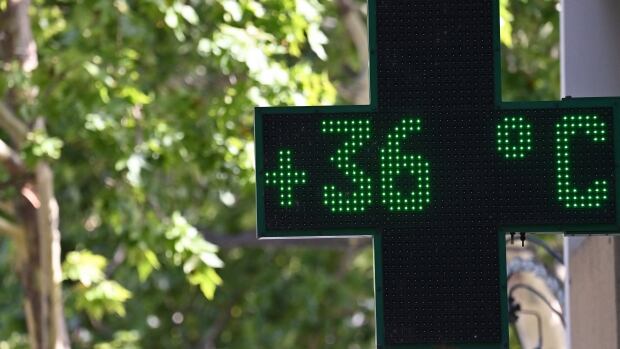
Environment Canada's use of Celsius marks its 50th anniversary in 2025. It was the catalyst of a lengthy national metric conversion that abruptly ended a decade after it began.
1 Jan 2025 13:00:32
 CBC Edmonton
CBC Edmonton
When will Edmonton's Coliseum finally be demolished?
Edmonton’s Coliseum was closed in 2017 and it’s expected to take at least another two years before the building is in rubble on the ground. ...More ...
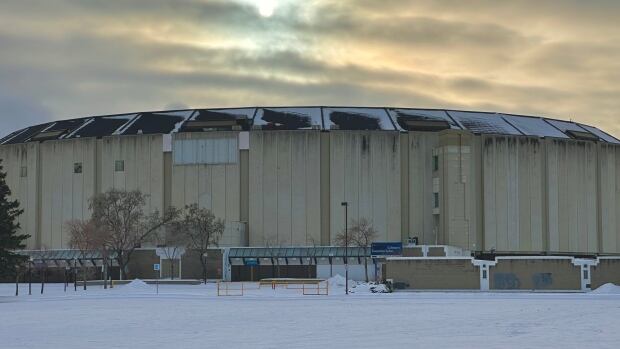
Edmonton’s Coliseum was closed in 2017 and it’s expected to take at least another two years before the building is in rubble on the ground.
1 Jan 2025 12:00:00
 Alberta Views
Alberta Views
We Are Already Ghosts
by Kit DobsonUNIVERSITY OF CALGARY PRESS2024/$34.99/232 pp. Kit Dobson is a writer of many talents. Besides the literary scholarship you’d expect from a University of Calgary English professor, he� ...More ...
Kit Dobson is a writer of many talents. Besides the literary scholarship you’d expect from a University of Calgary English professor, he’s the author of two remarkable non-fiction books, Malled (2017) and Field Notes on Listening (2022), both of which deal, in very different ways, with how we experience place, home and continuity. His first novel, We Are Already Ghosts, shares that concern, but approaches it from that oldest of human activities—storytelling.
The action of the book occurs among the members of an extended upper-middle-class family as they spend a series of summers at their cabin in central Alberta. Imagine the various divisions that naturally occur in such a group—the older generation and the younger one, the separate nuclear families that make up the larger group, men and women, blood relatives and the relatives by marriage. At this point you may be thinking of Chekhov, or perhaps of On Golden Pond. But where stage plays by their nature deal with the relationships between characters, Dobson is just as interested in the interior lives of his characters—most of what happens in the book happens inside the head of one character or another.
So what do these relatively settled, relatively privileged people think, in between their family dinners, their games of cribbage, their days on the lake and their trips to the county dump? This sort of thing: “He imagined Clare’s disappointment in him, in his inability to inhabit joy. Still, he was brave enough. For all of his faults, he was constant: he was as loyal as could be.” There’s something extraordinarily calming in the constant flow of self-criticism, self-justification and comparison of the past to the present and of oneself to others that Dobson presents us with. For better or worse, these are the contents of our own minds most of the time. How gratifying it is to think how reasonable they are, how inescapable, and how little they change anything.
In the world Dobson creates, what does change comes in two forms. The first, and the most important, is the inevitable—children grow up, old people retire and even older people die. These inevitabilities are matched by the daily inevitable fluctuations of lake life—the changing weather, the changing meals, the beginnings and the ends of the two-week vacations. All of these remind the characters and us of the inevitabilities that have already happened, and of the ones to come.
And then there are the surprises—the tragic events that happen offstage, and which force the characters and us to assimilate them into the genteel routine to which we have all become accustomed. In We Are Already Ghosts, Dobson gives us life just as it is.
Alex Rettie is a long-time reviewer for Alberta Views.
____________________________________________
Support independent local media. Please click to subscribe.
The post We Are Already Ghosts appeared first on Alberta Views.
1 Jan 2025 10:00:56
 Alberta Views
Alberta Views
Masking Fear
Excuse me, are you senator Simons?” It’s early afternoon at the Old Strathcona Farmers’ Market and I’m buying myself a big bag of carrots, for the borscht I intend to make for dinner. Senators ...More ...
Excuse me, are you senator Simons?” It’s early afternoon at the Old Strathcona Farmers’ Market and I’m buying myself a big bag of carrots, for the borscht I intend to make for dinner. Senators—and political columnists—enjoy a strange degree of semi-celebrity. We’re not quite famous enough to be regularly recognized, so any time a stranger comes up to me to say hello, I’m a little bit surprised, and a little bit leery.
Still, the Venn diagram of people who shop at the hipster Old Strathcona Market, and people who might be expected to follow my work in the Senate contains a lot of overlap. So if I’m going to be recognized anywhere in Edmonton, it’s likely here.
“I just want to thank you,” the woman says. “I want to thank you for wearing a mask.”
It’s true. I’m at the market this afternoon wearing a sturdy N95. A couple of years ago, lots of people in this crowded market would have been wearing masks too. But on this sunny Saturday, the woman and I are pretty much the only two people still masking up—despite news reports that indicate COVID-19 rates are rising again and the flu season has arrived early.
She thanks me one more time, not just for wearing a mask in the market but for sharing videos and photos of myself, with my mask, on social media. She tells me how much it helps her to find the courage to mask herself when she sees me, a public figure, doing so.
If the sight of my mask makes you angry or uncomfortable, you should ask yourself why.
I thank her and continue my shopping. But her voice echoes in my ears.
Yes, I’m still wearing a mask. And yes, it takes some courage. Any time I post images of myself in a mask on my Facebook page, the insults and jeers come thick and fast, mocking me for wearing “a face diaper” or for being too stupid to know that COVID is “over.”
I’ve had strangers shout angry abuse at me as I walk through airports. But I think the most exasperating are the jokes and eyerolls from colleagues and family members, who seem to take my mask as a personal affront or insult. These friends and relations bug me—jokingly, but incessantly—to take it off, or tease me for what they perceive as my neurosis. I had one Senate colleague make fun of me for masking—only to tell me, in his next breath, that he was just getting over his fourth case of COVID.
People ask me: Why are you still wearing a mask? Isn’t it uncomfortable or inconvenient? Aren’t you tired of it?
Well, yes. It is. All of those things. And yet I mask. Even if that makes me an outlier.
I have what you might call “a high-risk lifestyle.” I fly on jam-packed airplanes twice a week. I attend many meetings and busy receptions with hundreds of guests. So the odds of my being exposed to the coronavirus are higher than average—and so are my odds of spreading it to others.
I have a personal health history that makes me wary. I shan’t bore you with details. Let’s just say that if I were to get COVID, it might be nastier than the average case. I’ve been careful to get every shot, to wash my hands, to mask in crowded indoor spaces. And, touch wood, I haven’t had COVID. Yet.
I confess, though, I do feel a glimmer of glee every time I trigger a troll with my mask.
Maybe that’s naughty. Look, I know people are tired of COVID, I know how badly we all want to forget how awful things were at their worst, how many millions died, how many more were left with long-term health consequences. Like a modern-day memento mori, my masked face reminds people of horrors they’d rather deny. But no matter how hard we wish it away, we’re still dealing with an infectious disease that can make some people quite sick, even though the latest mutations and variants are less dangerous than the original virus.
Perhaps my mask isn’t protecting me as much as I think it is. At this point, I accept that it’s also something of a talisman, to help me deal with my anxiety about catching this disease, or about spreading it to someone more vulnerable than I am. But I don’t apologize for that. If I am wearing a mask for my own psychological comfort, well, that’s not really anyone else’s business either. Frankly, I’m sick and tired of people harassing me about it, online or in person.
But my encounter this day at the farmers’ market reminds me that I’m not just wearing my mask for myself. I’m wearing it for all the people who are masking because they are seriously immunocompromised. Or because they’re caring for someone who is immunocompromised. I’m wearing it as a public figure, to give permission to everyone else who needs or wants to mask. I will go on masking, to tell them they are not alone. And to remind everyone else that this thing isn’t done with us yet.
So, if the sight of me, in my mask, makes you angry or uncomfortable? Perhaps, instead of making fun of me, you should ask yourself why.
Paula Simons is an independent senator and the host of the podcast Alberta Unbound. She lives in Edmonton.
____________________________________________
Support independent local media. Please click to subscribe.
The post Masking Fear appeared first on Alberta Views.
1 Jan 2025 10:00:55
 Alberta Views
Alberta Views
Dare to Bird
by Melissa HaftingROCKY MOUNTAIN BOOKS2024/$45.00/240 pp. Dare to Bird: Exploring the Joy and Healing Power of Birds, the debut book by BC-based author Melissa Hafting, defies categorization and compl ...More ...
Dare to Bird: Exploring the Joy and Healing Power of Birds, the debut book by BC-based author Melissa Hafting, defies categorization and complicates reader expectations. What at first appears to be a coffee table book of Hafting’s photographs, Dare to Bird reveals itself as something altogether more engaged and profound.
Hafting opens with an epigraph from respected wildlife biologist, author and poet J. Drew Lanham: “I want people to look at birds and admire them, adore them. But then I want them to take their binoculars down and look around and understand why things are as they are. And then ask what they’ve done to either make things better or make them worse.” These words from an established Black conservationist who has himself experienced both the awe of the more-than-human world and the prejudice of the human world serve to underline the approach Hafting takes to this unique collection.
I opened this book fully prepared to appreciate the phenomenal photography throughout and to expand my understanding of the birds of western North America; what I hadn’t anticipated was the profound respect I quickly developed for Hafting’s bravery, both on the page and in the world. Dare to Bird is unique in its blending of photography and social commentary, its pairing of activism and memoir and its framing through the eyes of a mixed-race BIPOC woman.
Hafting grounds her book in community, from the diverse and inclusive groups of young birders she takes out to experience their first sightings, to the monitoring projects she has established in her home community of Richmond, BC, to the extensive human impact on the survival rates of various bird species. At its core, this book acknowledges human action as responsible for the devastation of bird populations, while also nodding to the resilience of birds and the potential of coming human generations to choose to act in the world with greater awareness.
Dare to Bird caught me by surprise with its blend of science, racial and political awareness, environmental realism and vulnerable narrative. Hafting weaves lived experience with scientific knowledge, touching on the necessity of increased diversity in the birding world and safety for BIPOC people wishing to engage in pastimes such as birding that have been profoundly non-diverse.
But Hafting has a second focus in her book, too: the ability of the more-than-human world to offer solace in times of intense grief and loss. In Hafting’s case, the loss was of her parents, dead within a few months of each other. The sudden absence of the very people who supported her in her early fascination with nature threatens to destabilize her. To regain her balance, Hafting turns to birding and its attendant communities for healing.
Drawing together environmental caution, science, social commentary and devastating personal narrative, along with an infectious enthusiasm for birds and truly exquisite photographs, Dare to Bird is a fascinating book.
Jenna Butler is an author and scholar near Barrhead. Her most recent book is Revery: A Year of Bees (Wolsak & Wynn).
____________________________________________
Read more from the archive “Wings of Change” October 2024.
Support independent local media. Please click to subscribe.
The post Dare to Bird appeared first on Alberta Views.
1 Jan 2025 10:00:44
 Alberta Views
Alberta Views
Half-Light
by Amy KalerUNIVERSITY OF ALBERTA PRESS2024/$26.99/204 pp. Half-Light: Westbound on a Hot Planet is Amy Kaler’s collection of short essays about “going west,” both literally and metaphorically. ...More ...
Half-Light: Westbound on a Hot Planet is Amy Kaler’s collection of short essays about “going west,” both literally and metaphorically. Her exploration is part travel journalism, part memoir and part cultural criticism. “While I am geographically westbound, in a place whose past is… not mine by choice,” she writes, “I am also bound for the west in a chronological and mythical sense.”
In the prologue, Kaler tells us her book is about three things: getting older, the settler west, and living during a climate catastrophe, but these ideas never quite come together to create a unified whole. The idea of “going west” is loosely applied but not always successfully, and once in a while I found myself skimming to the next essay. In spite of this, there is much to appreciate in Kaler’s writing.
A professor of sociology at the University of Alberta, Kaler doesn’t flinch in her approach to difficult subjects. Even as people lose their homes (and lives) to wildfires, floods and hurricanes, our minds might timidly dance around the broader implications of these extreme weather events, but Kaler plunges right in: “I can’t help but think about the end times, that I might be seeing everything fall apart.” This doesn’t read as apocalyptic rhetoric. Kaler’s is a thoughtful examination of one of our greatest, often unspoken fears.
Kaler and I are of a similar age, so, at times, her writing reflects my own existential musings. The predictable unfolding of birthdays seemed relatively straightforward until I turned 50, a birthday that left me shaken. Of this phenomenon, Kaler writes, “I’m starting to see that the road ahead of me is shorter than the road I’ve travelled.” Never self-indulgent or maudlin, Kaler’s writing on aging is instead reflective and insightful.
Kaler’s academic background gives her a wealth of knowledge from which to make connections. In one of my favourite essays in the collection, she writes about COVID-19 restrictions as both “not a good way for me to live” and an opportunity for “withdrawal” and compares her isolation to the experiences of medieval anchorites Jutta von Sponheim and Hildegard of Bingen. Jutta had gone into her decades-long isolation willingly while Hildegard was confined as her companion. Jutta probably died of self-starvation, but Hildegard thrived after Jutta’s passing, becoming an abbess and writing treatises on theology, natural history and other subjects. On her good days, Kaler tells us, she could take inspiration from Hildegard, hammering her experience into her “own purpose.” On her bad days she felt more like Jutta, “prone to extremes in order to ward off an unknown future.”
Many of Kaler’s essays feature forgotten or nearly forgotten places, relics of the “settler west.” If you’ve explored the western provinces, you’ve likely seen some of these “capitalist ruins.” They are communities or mines or bridges that rose as part of the “economic apparatus of the west” and all but disappeared once they lost “financial value.” In one essay, Kaler explores Retlaw, a ghost town she describes as “a brief candle,” a “place where a town used to be for almost ten times as long as the town existed.” Over a lifetime, I’ve seen so many of these ruins that they seem commonplace. Kaler’s reflections remind me that they are a signature of our colonial past.
Half-Light: Westbound on a Hot Planet is full of astute sit-a-while-and-think-about-it observations, many of which I’ll want to come back to and reread or quote in my own writing. At her best, Kaler offers us new ways of seeing and grasping both the mundane and the terrifying.
Roberta Laurie teaches communication studies at MacEwan University and is the author of Weaving a Malawi Sunrise.
____________________________________________
Support independent local media. Please click to subscribe.
The post Half-Light appeared first on Alberta Views.
1 Jan 2025 10:00:42
 Alberta Views
Alberta Views
The UCP Want More Control
For an interview with UCP-friendly Calgary Sun columnist Rick Bell for his May 31, 2024, column, premier Danielle Smith proclaimed herself likely “the most freedom-loving politician we ever had in t ...More ...
For an interview with UCP-friendly Calgary Sun columnist Rick Bell for his May 31, 2024, column, premier Danielle Smith proclaimed herself likely “the most freedom-loving politician we ever had in this country.” The context in which she said it, however, suggests that her conception of freedom is quite flexible. Smith spent the spring 2024 legislative session entrenching provincial power over municipal governments. Her approach earned her stinging criticism from people who study authoritarianism, as well as from municipal leaders—urban and rural alike.
Smith’s penchant for exercising executive power—always under the pretext of challenging federal government overreach—has been on display ever since her first year as premier. Tucked away in the original version of her signature Alberta Sovereignty within a United Canada Act was a clause empowering cabinet to unilaterally amend provincial legislation. Another clause empowered cabinet to direct various provincial entities, including municipalities, to disobey federal legislation. In response to widespread backlash, Smith removed the clause allowing cabinet to rewrite provincial legislation by fiat, which she had initially denied existed at all. But the bill as passed in December 2022 maintained cabinet’s ability to issue orders to provincial bodies to ignore federal legislation.
A year after her re-election with a secure, albeit diminished, majority in May 2023, Smith sponsored a trio of bills that built upon the Sovereignty Act’s engorgement of provincial power. As was the case with the Sovereignty Act, Smith made tactical retreats on some of the far-reaching bills’ most egregious language while maintaining their basic structure.
These laws, taken together, enable the provincial government to block federal funding from initiatives it disagrees with; make it easier for the province to remove elected municipal officials from office and rewrite municipal bylaws if they depart from the UCP agenda; introduce naked partisanship to municipal elections in Calgary and Edmonton; bring big money back into municipal elections; make it harder for vulnerable people to vote; and enable the province to further centralize power in the event of an emergency.
At the core of these legislative changes, according to University of Calgary political scientist Lisa Young, is a “belief that conservatives are entitled to a political monopoly in the province, and that other perspectives are illegitimate,” with Smith using the levers of the state to produce outcomes in accordance with that perspective. “When we take all of the measures together, it really does look as though the province would like to turn the municipalities into administrative units that act on the direction of the provincial government, so it’s a centralization of authority and direction in the provincial government at the expense of elected officials at the local level.”
Smith’s changes will also make it easier for her foot soldiers in Take Back Alberta, the far-right activist organization that brought her to power and now says it controls a majority of the seats on the UCP board of directors, to achieve its stated aim in the 2025 civic elections of purging municipalities and school boards of anyone who disagrees with TBA’s religious fundamentalist and anti-democratic agenda. It looks increasingly as though Smith, when she talks about her purported penchant for freedom, is referring to the freedom for herself and her supporters to shape the province in their preferred and extremely narrow image.
Bill 18
The first legislative salvo fired against municipalities in the spring sitting was Bill 18, or the Alberta Priorities Act, introduced in April 2024, which the premier explicitly described as a way to hamper municipalities from working against the UCP government’s agenda. The legislation mandates that all municipalities, school boards, health authorities and post-secondary institutions, among other provincial bodies, seek provincial government approval before entering into any agreements with the federal government.
“We’re not going to allow the federal government to come in and work directly with the provincial entity that we give a regulated mandate to and circumvent the things we want to do,” Smith said, echoing the 2016 UK Brexit campaign in portraying the bill as “taking back control” of federal agreements. “We know the federal government, on certain issues, has a diametrically opposed view to what it is we want to do.”
In the same breath, Smith accused the federal government of imposing “an ideological agenda” with its funding commit-ments while denying her government was engaged in any sort of comparable behaviour. “When we do spending,” she said, “it doesn’t have an ideological tinge to it.”
Edmonton mayor Amarjeet Sohi, a former federal Liberal cabinet minister, criticized the bill for creating needless red tape for municipalities, which he predicted will have tangible results on the ground. The need to constantly get provincial approval for any federal funding “will hurt our ability to move quickly on infrastructure projects, from small projects to the largest ones,” Sohi told the Edmonton Journal in April 2024. For example, in a post-Bill 18 future, support for the Rapid Housing Initiative, to which the feds contributed $12.5-million for Edmonton in September 2023, may not be so rapid.
Wetaskiwin mayor Tyler Gandam, president of Alberta Municipalities, says the entire notion of “provincial priorities” is a fraught concept, given the different needs of various municipalities. If voters in an Alberta municipality identify a priority, Gandam said, “that sounds like it’s a priority in Alberta,” which would make it a de facto provincial priority that ought to be respected. He added that he’s struggling to understand the province’s desire to insert itself into municipal arrangements with the federal government. “It just creates more hoops for us to jump through while we’re trying to build and maintain the infrastructure and communities we’re serving.”
Young says that while this legislation will create headaches for municipalities and other bodies, it has the most troubling implications for academic freedom, given federal funding for research grants through the Canadian Institutes of Health Research, the Social Sciences and Humanities Research Council and the Natural Sciences and Engineering Research Council of Canada. In the 2022/23 school year, these bodies, known collectively as the “tri-council agencies,” were responsible for a combined $317-million in grants at Alberta post-secondary institutions.
Her view that federal research grants are distributed by Trudeau is “not grounded in reality.”
The premier has openly expressed her desire to vet these grants to ensure “all people from all political perspectives are able to engage in a robust debate and have a robust research agenda.” As evidence for her concern, Smith, a former Calgary Herald columnist and long-time talk radio host, cited her belief that more liberal journalists and commentators than conservative ones are graduating from journalism schools.
Smith’s view that federal research grants are distributed by prime minister Justin Trudeau to reflect his ideological inclinations is “simply not grounded in reality,” Young said. “It’s an independent research adjudication process. The Trudeau government does not get to pick winners and losers when it comes to grant from the tri-agency.” Grant proposals are evaluated by a review panel composed of volunteer experts who scrutinize each proposal based on criteria specific to each funding agency, as well as the agency’s broader policies and procedures.
The premier’s paranoid perspective on post-secondary grant allocations can be applied to municipalities, which she views as conspiring with Trudeau to undermine the province’s interests as she sees them. Nowhere is that more evident than in the province’s two biggest cities.
Bill 20
The centrepiece of Smith’s authoritarian streak towards municipal governance is Bill 20, the Municipal Affairs Statutes Amendment Act, which made far-reaching changes in the two statutes concerning municipalities—the Municipal Government Act and the Local Authorities Election Act. Concordia University of Edmonton political scientist Elizabeth Smythe called this legislation an example of “[d]emocratic backsliding … at its most blatant.”
A crucial piece of Bill 20 is the introduction of municipal political parties in Calgary or Edmonton in time for the 2025 municipal vote (they may yet be introduced throughout the province). Smith has argued that partisanship already exists in the two major cities’ municipal politics, so allowing formal party affiliation will simply bring it out into the open, adding—according to a Municipal Affairs spokesperson—a layer of “transparency and accountability” to civic elections.
Young says this argument is not entirely without merit. Two of Canada’s largest cities—Montreal and Vancouver—have municipal parties. “In and of themselves, [parties] are not undemocratic or problematic,” she said. But, taken into consideration alongside other aspects of Smith’s approach to municipalities, “it’s hard to see this legislation any way other than through the lens of an articulated discontent with the choices that voters in Calgary and Edmonton have made at the municipal level—that it’s an attempt to ensure conservative control of those city councils.”
It’s important to consider this aspect of Bill 20 alongside its reintroduction of corporate and union donations into municipal elections, Young says. On a superficial level, this might even sound fair, with corporations and unions given the same $5,000 limit that applies to individual donors. But unions and corporations are fundamentally different entities. “It’s going to have a very asymmetrical effect,” says Young. “This is not an even-handed change to the rules.” A union representing thousands of workers, she explained, is restricted to the $5,000 limit, but if a wealthy individual owns, say, 10 companies, there’s nothing preventing that person from contributing upwards of $50,000 without breaking the law.
At the same time that it allows big money to dominate local elections, an underexamined piece of Bill 20 makes it more difficult for marginalized people to vote by eliminating the practice of vouching. The practice allows electors without ID (e.g., students, mobile workers, people who can’t afford to renew their ID) to be vouched for by another elector in their voting area under certain conditions; some 10,564 Albertans voted this way in the 2023 election. In a May 29, 2024, piece in The Conversation, University of Alberta academics Jared Wesley and Alex Ballos argued that banning vouching represents a “dangerous precedent that fundamentally undermines a cornerstone of democracy: accessibility.”
According to publicly available Elections Alberta data, a grand total of seven illegal votes have been cast in more than a decade of Alberta elections, all of which occurred in the 2019 and 2023 elections, leading Wesley and Ballos to call the elimination of vouching a “solution for a problem that doesn’t exist.”
Rural Municipalities of Alberta (RMA) president Paul McLauchlin, who serves as the reeve of Ponoka County, cautioned that making it harder to vote gives credence to conspiracy theories questioning the legitimacy of democratic elections. “And interest in municipal politics is already [low]. We get very low voter turnout,” he told the St. Albert Gazette. “Putting in higher barriers to voting only compounds these challenges.”
In this context, it’s worth considering premier Smith’s obsession with US culture-war politics, including efforts by Republican legislators to restrict voters’ ability to cast ballots through draconian voter ID restrictions, which Wesley and Ballos note overwhelmingly disenfranchise racialized and other marginalized people.
In its original iteration, Bill 20 gave cabinet the authority to unilaterally remove municipal elected officials from office under unspecified “specific circumstances,” and repeal bylaws that the government deemed not to be in the “public interest.” Alberta Municipalities’ Gandam called this aspect of the bill “a power grab that completely takes away from our democratic process at the municipal level [in which] our residents decide who represents them.”
By the time the bill passed its third reading in the legislature, this aspect had been amended to empower cabinet not to remove municipal officials but merely to initiate a recall petition against officials cabinet deems “unwilling, unable or refusing to do the job for which they were elected.” It clarified that bylaws could only be repealed in the event they’re deemed to be a violation of the Municipal Government Act, unconstitutional or, channeling the spirit of Bill 18, “contrary to provincial policy.”

Jan Novotny protesting outside of the Alberta legislature against the changes to municipal governance in Bill 20, Edmonton, May 6, 2024.
Bill 20’s critics weren’t satisfied with these minor modifications. McLauchlin of the RMA likened the legislation’s final form to a “large axe hanging over all of our heads,” one which risks making municipal politics in Alberta “unrecognizable.”
Gandam noted that under the previous version of the Municipal Government Act, the province already had the ability to dismiss municipal elected officials, which it had done as recently as December 2023, when the government dismissed Chestermere’s mayor, three city councillors and three administrators. But the investigation that preceded those dismissals followed a clear process, Gandam said. “The councillors were given the opportunity to correct their behaviour and their action, so that they could still continue on council. They chose not to, and that’s why they were removed from council.”
A thorough investigation found that former Chestermere mayor Jeff Colvin, during his two years in power, spent $53,000 on his city-issued credit card, mostly on meals, with some tips ranging from 50 to 100 per cent. Of 565 mayor and council expenses the investigation examined, just one adhered to the city’s policy on filing and approving expenses. The city also spent $1.6-million in lawyer fees, none of which were approved in accordance with the city’s procurement policy, including $22,000 for a lawyer to investigate councillor Ritesh Narayan—one of the three councillors ultimately spared from removal.
This existing power hasn’t been applied consistently. The UCP government declined to use it to order an investigation of conservative Calgary councillor Sean Chu, whom the Law Enforcement Review Board found guilty of sexual misconduct with a minor when he served as a Calgary police officer. This suggests there is a legitimate need for the provincial government to clearly articulate in legislation the circumstances in which it can or cannot investigate an elected municipal official. “But that’s not what we have here,” says Lisa Young. Rather, Smith has made it so cabinet can skip the sort of due process afforded to Chestermere’s municipal government and go straight to a recall campaign.
In terms of bylaws, the province already has the power to update the Municipal Government Act to prevent municipalities from imposing specific policies it doesn’t want, Young said, a power which former premier Jason Kenney used to prohibit municipalities from imposing mask mandates after he lifted the province’s mandate. With Bill 20, Smith has made it easier for the province to interfere in municipal affairs more frequently.
Young said these provisions of Bill 20 serve as a tacit warning to municipal leaders. “It could be used in a way to constrain what city or municipal councillors are actually willing to pass. If they know that the province is going to come in and veto legislation they’ve passed, will they go ahead and pass it, particularly when you couple that with the threat of dismissal?”
Bill 21
The final part in Smith’s trilogy of anti-municipal legislation is Bill 21, the Emergency Statutes Amendment Act, which gives the province the ability to take control of local emergency response without a municipality’s consent.
“Everybody’s come to the same conclusion: that we can’t sit back and wait for the fire to jump the border and burn down Slave Lake or burn down Fort McMurray or potentially burn down Drayton Valley,” Smith told reporters at a May 9, 2024, press conference. Smith claimed this change was a specific request from municipalities. Gandam had told the CBC in an earlier interview that while municipalities have requested more resources to manage emergencies, he’s not aware of any that have asked the province to take over their emergency response.
Nor is McLauchlin, who told the Edmonton Journal that rural municipalities want “collaboration, not control.” He characterized Bill 21 as the “latest attempt to reduce the authority of municipal leaders, with no clear explanation as to how this will do anything other than confuse and complicate emergency response moving forward.”
Lisa Young says that, like the creation of municipal political parties, the appropriate level of provincial involvement in emergency response is debatable. “But this legislation wasn’t introduced in a vacuum,” she said. “It was introduced after Bills 18 and 20, so it’s hard not to see it as part of a consolidation of authority in the provincial government at the expense of municipal government.”
Premier Smith spent the spring 2024 legislative session entrenching provincial power.
The failed effort to recall Calgary mayor Jyoti Gondek in 2024 is a preview of the style of municipal politics Smith has emboldened through legislation. The recall petition’s public face was local business owner Landon Johnston. But Mount Royal University political scientist Duane Bratt obtained a document outlining the coordinated involvement of figures with deep ties to the UCP and Take Back Alberta, with the aim of using the petition as a springboard for electing “common-sense conservative Mayor and Counsel [sic]” in 2025.
When former premier Kenney introduced the Recall Act in 2021, he set an impossibly high bar: the collection of signatures from 40 per cent of a municipality’s entire electorate within 60 days to recall a mayor. In 2024 in Calgary this amounted to 514,284 signatures. Under these terms the Recall Gondek petition was doomed to fail—as indeed it did. The petition collected 69,344 signatures, and of the 369 randomly selected by city officials for scrutiny, not one was valid.
But Young says the petition was surely successful as a “data-mining exercise” to obtain the names of people who could be willing to volunteer and donate to a conservative municipal party in 2025. “And it contributes to a perception,” she said, “that the mayor is unpopular, that there’s a good chance for someone to challenge her in the next election if she runs, and so it potentially can rally the party faithful under those circumstances.”
With Bill 20 empowering cabinet to initiate a recall process for local politicians that the provincial government deems unsuited for their job, Albertans can expect more such campaigns. Combined with its provision making the minister of municipal affairs, rather than city administration, responsible for validating a recall petition, it’s possible that future recalls will find more success.
A key figure in implementing Smith’s municipal crackdown is municipal affairs minister Ric McIver, a former Calgary city councillor and failed mayoral candidate. He earned the moniker “Dr. No” during his time on council from 2001 to 2010, owing to his penchant for voting against major city projects. Druh Farrell, whose time as a councillor from 2001 to 2021 overlapped with McIver’s, says his obstructionist instincts haven’t changed at all.
Farrell suspects that McIver holds a “grudge” from the 2010 mayoral election, which he lost to political newcomer Naheed Nenshi. Before McIver was appointed municipal affairs minister in 2021, he served as former premier Kenney’s transportation minister, a role in which he put up roadblocks against approval of the Green Line LRT expansion—one of Nenshi’s signature initiatives—despite McIver’s having supported the new line when he was a city councillor. “He couldn’t articulate what [his government] didn’t like about it,” said Farrell. “But they withheld approval because they could—and they’ve created a mess that we’re having to live with.”
McIver’s current role, however, allows him to meddle even further in municipal governance, making him a useful emissary for the UCP’s grievance-fuelled politics of “power and control.” “Now he gets to make decisions for cities without running for city council,” said Farrell. “It’s an excellent situation for him. He’s an authoritarian figure.”
Constitutionally, Smith and McIver have the power to do whatever they like with municipalities, which they’re fond of reminding Albertans are “creatures of the province.” Farrell ties this literalist reading of the constitution, which was written in 1867, to the UCP’s social conservative bent—a position bolstered by Take Back Alberta leader David Parker’s obsession with the “tyranny of the rainbow guard” and by Smith’s radical anti-trans policies. “They’re taking us back to when most Albertans lived on the family farm, not in municipalities,” she said. “It’s a step backwards for a modern society to go back to the way things were in the 1800s. You wonder what else they want to reverse.”
But with the overreach represented by Bills 18, 20 and 21, Smith has alienated rural Albertans too. “We’re being put into a smaller and smaller box, and the government is taking more and more authority away from us, which makes no sense based upon our past relationship with this government,” McLauchlin of the RMA told the Canadian Press. “It is extremely hard for a conservative government to make rural Alberta mad, and they’ve done that successfully in three acts.”
Jeremy Appel is an independent journalist who covers Alberta politics. His previous AV story “Just Say No to Drugs,” examined the UCP government’s approach to the overdose crisis.
____________________________________________
Support independent local media. Please click to subscribe.
The post The UCP Want More Control appeared first on Alberta Views.
1 Jan 2025 10:00:39
 Alberta Views
Alberta Views
Political Activist Ethnography
Edited by Agnieszka Doll, Laura Bisaillonand Kevin WalbyATHABASCA UNIVERSITY PRESS2024/$37.99/274 pp. Over the past few decades, folks from marginalized communities ranging from BIPOC to feminist to d ...More ...
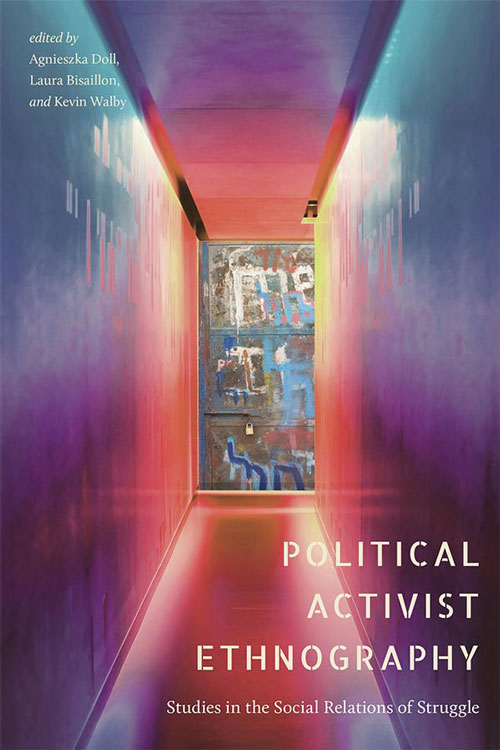
Edited by Agnieszka Doll, Laura Bisaillon
and Kevin Walby
ATHABASCA UNIVERSITY PRESS
2024/$37.99/274 pp.
Over the past few decades, folks from marginalized communities ranging from BIPOC to feminist to disability justice have transformed how and why research happens, who does it and for what purposes and whose benefit. Political activist ethnography (PAE) is a key strategy within this major shift in the world of research. This new anthology does an excellent job of explaining it.
PAE challenges traditional thinking in refusing to accept that research and activism are separate, distinct categories that constitute a binary—in which academics study and investigate while activists do hands-on social change work. PAE raises fascinating questions about the overlap between research and activism, and provides examples of the ways that folks engaged in activism and the academic world do both at the same time. Take for example A.J. Withers’s essay, the first case study presented. Withers, now an academic, worked as an anti-poverty organizer with the Ontario Coalition Against Poverty (OCAP). Withers provides an in-depth discussion about the ethical principles that guided their research: accountability, utility, accessibility, reciprocity and reflexivity. Their thinking on the need for accessible language (important for everyone, particularly folks without postsecondary education, with intellectual disabilities, and whose first language is not English) was thoughtfully done, as was the discussion about the importance of research being set up so that it offered something concrete to OCAP members.
I also appreciated the essay by Aziz Choudry reflecting on his in-depth interviews with activists and their ongoing research work. Choudry provides insights about the ways activists have consistently engaged in research—and how often they are not perceived as such. His praise of activists’ critical thinking skills spoke to my own years of activist work, which provided me with an incomparable education no university could match.
Sue Bradford, a long-time activist connected to the radical left of Aotearoa/New Zealand, took on a research project involving consultations with progressive activists in 2010, focusing on the absence of a left-wing think tank in that country and how this lack impacted social change work. Several actions resulted from her research, including the formation of a new think tank, Economic and Social Research Aotearoa. Through her piece, Bradford raised questions about herself and her actions. This deep reflection is characteristic of the book, as all authors combine enthusiasm for PAE with attentiveness both to challenges and to their own identities. Offering provocative and stimulating questions and insights about social justice movements, power and relationships, this book is well worth the read.
Joe Kadi teaches gender and sexuality studies at the U of C.
____________________________________________
Read more from the archive “Activists Among Us” March 2004.
Support independent local media. Please click to subscribe.
The post Political Activist Ethnography appeared first on Alberta Views.
1 Jan 2025 10:00:36
 Alberta Views
Alberta Views
The Dead Amygdala
Some of you with long memories might recall another time when I wrote about the human brain structure called the amygdala. The amygdala is a paired structure, one in each hemisphere. They, along with ...More ...
Some of you with long memories might recall another time when I wrote about the human brain structure called the amygdala. The amygdala is a paired structure, one in each hemisphere. They, along with the hippocampus, have much to do with emotion and memory. Each amygdala is about the size of a shelled peanut. When there’s danger, emotionally or physically, the amygdala sounds the alarm.
I wrote about the amygdala in 2014 because it was coming up on election time in Canada, and a study had emerged suggesting that people with larger amygdalas tended to vote conservative whereas those with smaller amygdalas tended to vote Liberal or NDP. Before conservatives shout out: “More proof that we’re smarter!” that wasn’t quite what the study found. Amygdala size isn’t about IQ. The evidence suggested that big-amygdala people tend toward black-and-white decision-making. Politicians, parties and plat-forms are either obviously good or obviously bad. If big-amygdala people don’t like something about a candidate, his hair for example, that’s it for him. Small-amygdala people are more inclined to admit that moral and legal issues usually involve gray areas that require navigation.
During 2024, particularly during the US presidential election, I found out more about the amygdala that seemed to describe what was going on.
The amygdala, to put it simply, is the part of the brain that attaches emotion to event. A dangerous looking individual comes running at you out of the darkness. You freak out. You run away or destroy him with judo chops. Either way, it was the amygdala that punched the fight-or-flight button. Given less extreme stimuli, the amygdala is still responding emotionally all the time. Many parts of the brain may be determining how we feel about something later, but in the moment, how and how much we feel is up to our two tiny cerebral peanuts.
Then I read something new. I discovered that the wee amygdala plays a role in human lying.
If you’ve been raised to believe that lying is bad and wrong—and most of us have—then lying makes you feel bad. In brain terms, lying causes an emotional upheaval in the amygdala. Anxiety is unleashed, and perhaps fear, since people don’t like liars much and let you know.
But a strange thing happens in the brain if you keep on lying. The more you lie, the less commotion in the amygdala. The more you lie without public humiliation or other negative consequences, the more your amygdala calms down about it. Here’s the kicker. If you actually benefit by lying, your amygdala relaxes completely.
You can see what direction this is going. The liar who gains from lying tends to become a compulsive liar. Here, in my opinion, is the answer to why there are so many compulsive liars in politics, not just in Canada and the United States but globally. Lying politicians are present, and probably growing in number, because we have created them! We heard their lies, recognized them as liars, and voted for them anyway.
The question “why are so many liars attracted to politics?” has, therefore, two good answers.
Number one: we elect people despite their lying.
Number two: by accepting lies, we caused their amygdalas to become increasingly quiet: “Oh look, he or she, my human host the politician, lied again. Meh.”
He lied at every rally, in every city, and, because his amygdalas kept hearing cheers, they got more and more sedated.
Though I could be talking about a great many countries, including Canada, I am brought to this subject by the recent US presidential election. The world champion of political lying, hands down, is Donald Trump. During his first go as president of the United States, his lies were documented and counted. Here was a politician so worried about lying that he did it tens of thousands of times while in office. In the recent election, Trump kept it up. He lied relentlessly, at every rally, in every city, and because his amygdalas kept hearing cheers, they got more and more sedated.
I titled this column “The Dead Amygdala” because I believe that’s what happened. During the televised political marathon, Trump lied and lied. In response, his Republican audiences laughed and cheered. His amygdalas became so drugged by lack of any negative consequence, they upped and died!
I assume that science will get it right on my Dead Amygdala Theory. Symptoms: compulsive, monotonal lying; making no eye contact; making little sense. Who can forget the 40 minutes of a rally where The Donald didn’t speak at all. We’ll listen to music, he said. For 40 minutes, he stood there and swayed. Someone on-line aptly called it “weaving.” A surefire symptom of the Dead Amygdala: weaving.
When grandpa stops making eye contact, and sense, and starts weaving (and especially if he expresses a desire to run in the next election), it might be time for the home.
Fred Stenson’s many books include the novels Who By Fire, The Trade, Lightning and The Great Karoo.
____________________________________________
Support independent local media. Please click to subscribe.
The post The Dead Amygdala appeared first on Alberta Views.
1 Jan 2025 10:00:30
 CBC Edmonton
CBC Edmonton
Ring in 2025 with CBC Edmonton
Watch Edmonton's family fireworks display to ring in 2025 at 8 pm MT. ...More ...

Watch Edmonton's family fireworks display to ring in 2025 at 8 pm MT.
1 Jan 2025 02:55:00
 CBC Calgary
CBC Calgary
Q&A: The time capsule at Chinook Mall turned 25. What's in it?
Buried six feet under CF Chinook Centre’s main entrance on Dec. 31, 1999, the time capsule is 25 years old this New Year’s Eve. One of the artists involved in its creation told CBC Radio a bit abo ...More ...

Buried six feet under CF Chinook Centre’s main entrance on Dec. 31, 1999, the time capsule is 25 years old this New Year’s Eve. One of the artists involved in its creation told CBC Radio a bit about what's inside.
7 months ago
 CBC Calgary
CBC Calgary
Here's some city fee increases Calgarians can expect to pay in 2025
The first day of 2025 is slated to come with a raft of new fare and fee increases from the City of Calgary. ...More ...

The first day of 2025 is slated to come with a raft of new fare and fee increases from the City of Calgary.
7 months ago
 CBC Calgary
CBC Calgary
Advocates, experts shine light on need for more domestic violence supports in Alberta
After Calgary police investigated a pair of deaths on Sunday that it called domestic in nature, some are pointing out the need for better resources focused toward preventing domestic violence. ...More ...

After Calgary police investigated a pair of deaths on Sunday that it called domestic in nature, some are pointing out the need for better resources focused toward preventing domestic violence.
7 months ago
 CBC Edmonton
CBC Edmonton
'Car wash cat' reunited with Alberta family after seven years away
An Alberta cat has been reunited with her family seven years after she vanished. Sophie returned in time for the holidays, thanks to community volunteers and Good Samaritans who helped her survive a p ...More ...

An Alberta cat has been reunited with her family seven years after she vanished. Sophie returned in time for the holidays, thanks to community volunteers and Good Samaritans who helped her survive a prolonged stay on the streets of Spruce Grove, west of Edmonton.
7 months ago
 CBC Calgary
CBC Calgary
Warmer winters shrinking Canada's outdoor skating season
Outdoor rinks have long been a staple of Canadian winters, but each season is shrinking and becoming more unpredictable with more warm spells making it difficult to maintain the ice and keep it open. ...More ...

Outdoor rinks have long been a staple of Canadian winters, but each season is shrinking and becoming more unpredictable with more warm spells making it difficult to maintain the ice and keep it open.
7 months ago
 CBC Edmonton
CBC Edmonton
Jasper mayor: Interim housing is Alberta town's biggest challenge for 2025
In a year-end interview, Jasper Mayor Richard Ireland tackles questions about his community's wildfire response, coming to terms with personal loss and rebuilding Jasper back up to be more resistant t ...More ...

In a year-end interview, Jasper Mayor Richard Ireland tackles questions about his community's wildfire response, coming to terms with personal loss and rebuilding Jasper back up to be more resistant to future fires.
7 months ago
 CBC Edmonton
CBC Edmonton
Albertans face new taxes on EVs, vaping products as of Jan. 1
Albertans who drive Teslas and other electric vehicles will have to pay an extra $200 when they renew their annual vehicle registrations starting Jan. 1. The province is also bringing in a new tax on ...More ...

Albertans who drive Teslas and other electric vehicles will have to pay an extra $200 when they renew their annual vehicle registrations starting Jan. 1. The province is also bringing in a new tax on vaping products.
7 months ago
 CBC Calgary
CBC Calgary
Man in serious condition after being struck by truck in downtown Calgary
Police were called to the intersection of Ninth Avenue S.E. and Third Street S.E. for reports of a collision involving a pedestrian around 5:30 a.m. ...More ...
Police were called to the intersection of Ninth Avenue S.E. and Third Street S.E. for reports of a collision involving a pedestrian around 5:30 a.m.
31 Dec 2024 02:33:47
 CBC Edmonton
CBC Edmonton
A look back at Jimmy Carter's 2017 visit to Edmonton
As Habitat for Humanity honours the late U.S. president, here's part of our 2017 conversation with Jimmy Carter when he was in the city. ...More ...

As Habitat for Humanity honours the late U.S. president, here's part of our 2017 conversation with Jimmy Carter when he was in the city.
31 Dec 2024 01:18:44
 CBC Edmonton
CBC Edmonton
The Canada Post strike is over but some rural Alberta communities are still feeling the effects
During the Canada Post strike, some people in rural communities had long waits for cheques, baby formula, and medication. ...More ...

During the Canada Post strike, some people in rural communities had long waits for cheques, baby formula, and medication.
31 Dec 2024 00:23:29
 CBC Calgary
CBC Calgary
Get one of those $36.29 direct deposits from Facebook? Here's what you should know
Did you recently get a direct deposit of $36.29 from Meta and are wondering if you can keep it? The company Facebook hired to manage the process, says, yes you can, but with conditions. ...More ...

Did you recently get a direct deposit of $36.29 from Meta and are wondering if you can keep it? The company Facebook hired to manage the process, says, yes you can, but with conditions.
30 Dec 2024 22:47:54
 CBC Calgary
CBC Calgary
A cold snap to ring in the new year, and other weather predictions for 2025
After a mild last week of 2024, the new year is set to arrive alongside temperatures plunging into the negative high teens. According to Environment Canada, the colder weather is expected to hit on N ...More ...

After a mild last week of 2024, the new year is set to arrive alongside temperatures plunging into the negative high teens. According to Environment Canada, the colder weather is expected to hit on New Year's Day, and continue to the end of the week, getting to -18 C overnight on Friday, with some snow flurries expected.
30 Dec 2024 22:21:26

